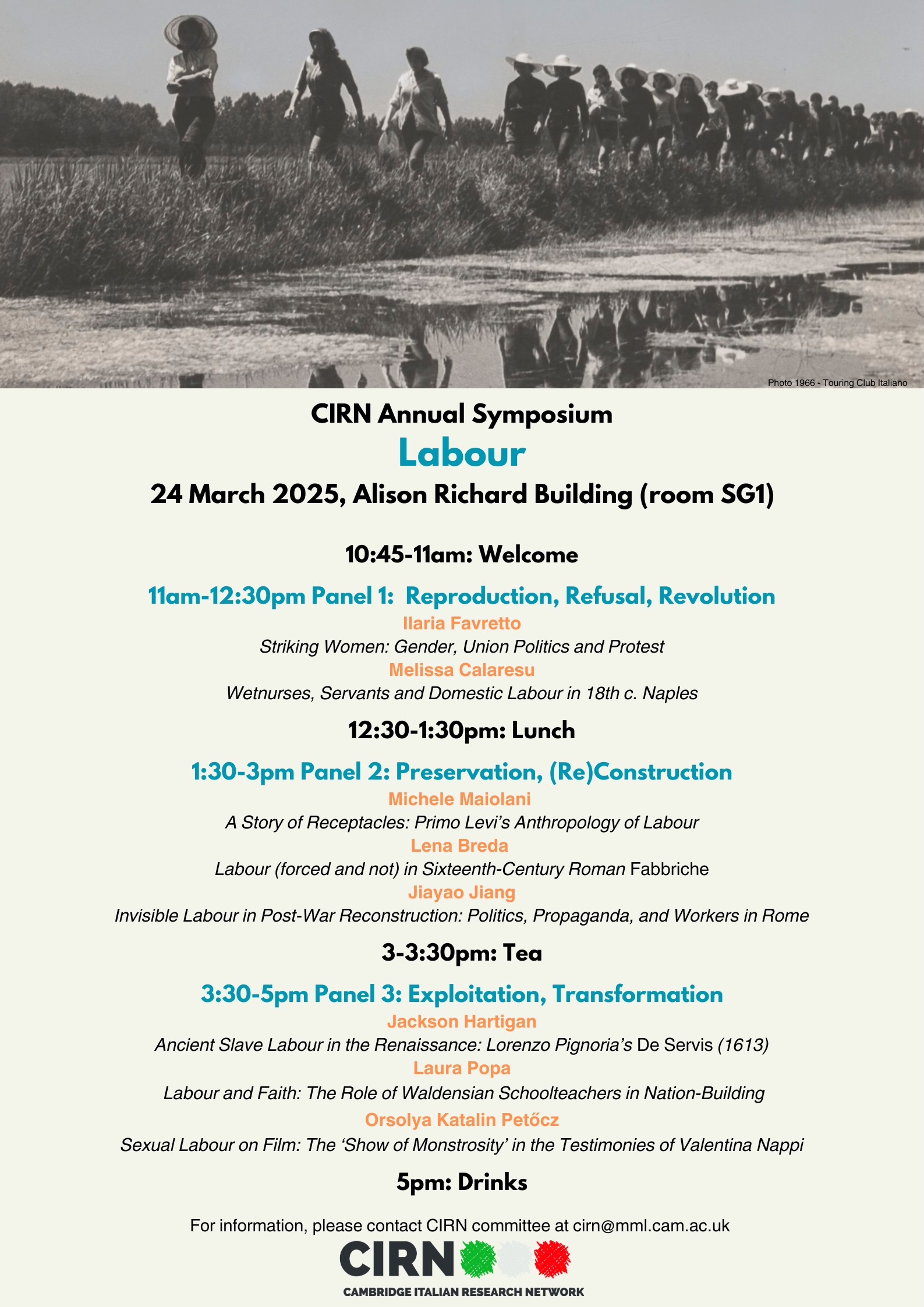Article 1 of the Italian Constitution (1947) states that ‘L’Italia è una repubblica democratica, fondata sul lavoro’ ('Italy is a democratic republic founded on labour/work'). ‘Lavoro’ is later defined as a right and duty of Italian citizens (article 4) and linked to the promotion of, and contribution to, the material and spiritual progress of Italian society. The importance of questions of labour and work in Italian life, society and culture throughout the centuries, therefore, cannot be overlooked and a genealogy of this ‘repubblica fondata sul lavoro’ should be reconstructed.
How have notions of labour and work become foundational in Italian societies and cultures? Through which theories, practices, histories and geographies? What kinds of ‘lavoro’ have been practised in Italian history and in which contexts? Which meanings have been attached to labour by different communities across time and space? What have been the lines of resistance to the normative and potentially exploitative and extractive dimension of labour? What are the contradictions implicit in the centrality of labour and work in Italian culture? How have cultural narratives and artistic representations contributed to solidifying or challenging notions of ‘lavoro’? The Cambridge Italian Research Network symposium sets out to create a space of reflection across disciplines on all these questions, among others. It aims to adopt a diachronic perspective and establish a dialogue between scholars working on Italy from the ancient past to the medieval, early modern, modern and contemporary eras.
For information, please contact Erica Bellia or Aurora Sturli.



